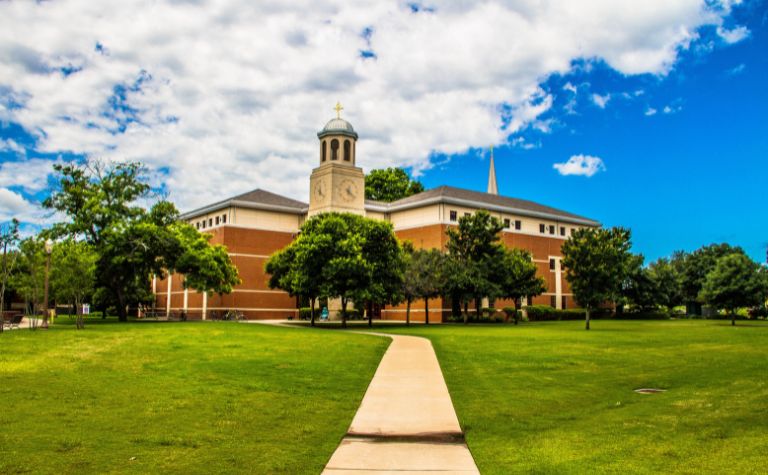Denver Seminary stands as a significant institution in theological education, anchoring its teachings and practices in core Christian convictions while also addressing the evolving questions of our time.
As with any institution, understanding its foundational beliefs provides insights into its character, purpose, and the impact it has on students and the broader Christian community.
In this article, we will explore the beliefs and values that shape Denver Seminary, offering a clear view of its theological orientation, its approach to contemporary challenges, and its commitment to a global Christian mission.

Historical Foundations and Vision
Founded in the mid-20th century, Denver Seminary emerged with the intent to provide robust theological training rooted in evangelical convictions.
Over the years, the institution has grown, not merely in student numbers and campus expansion but also in its reputation for scholarly excellence and spiritual depth.
From its early days, Denver Seminary was driven by a vision of equipping men and women for various forms of ministry, be it pastoral roles, missionary endeavors, or scholarly pursuits in theology.
This focus has remained steadfast, with the institution emphasizing a combination of rigorous academic inquiry and spiritual formation.
Denver Seminary’s growth can also be attributed to its adaptability.
While holding firm to core Christian tenets, the seminary recognized the need to address contemporary challenges, societal shifts, and cultural trends.
Thus, its curriculum and programs have evolved to meet the needs of each generation while staying true to its foundational vision.
The legacy of Denver Seminary’s founders and early leaders has had a lasting impact.
Their commitment to the authority of Scripture, the importance of the Church, and the centrality of Christ in all things laid a solid groundwork.
This foundation has allowed the seminary to navigate the complexities of changing times without wavering in its primary mission: to prepare individuals to engage the world with the transformative message of the Gospel.
In conclusion, the history and vision of Denver Seminary are intertwined, with its past shaping its present and its foundational beliefs guiding its future trajectory.
The seminary’s enduring commitment to its core vision ensures that it continues to be a beacon of theological education in the modern era.

Core Theological Principles
Denver Seminary’s teachings and philosophy are rooted in a set of core theological principles that guide its educational programs and institutional ethos.
These principles reflect the seminary’s evangelical foundation and its dedication to the historic Christian faith.
First and foremost, Denver Seminary affirms the inspiration, inerrancy, and authority of the Scriptures.
The Bible is viewed as the ultimate source of truth, providing guidance for doctrine, moral conduct, and the Christian way of life.
This unwavering commitment to the Scriptures serves as the bedrock for all theological instruction at the institution.
The seminary upholds foundational Christian beliefs about the nature of God, emphasizing the understanding of God as Trinity – Father, Son, and Holy Spirit.
Central to this is the affirmation of Jesus Christ’s deity, His atoning death, resurrection, and eventual return.
The work of Christ is seen as the unique means of salvation for humanity, a salvation offered by grace through faith.
Furthermore, the seminary recognizes the role and work of the Holy Spirit in the life of believers.
This includes the Spirit’s role in regeneration, sanctification, and equipping believers with gifts for service in the Church and the world.
The Church holds a special place in Denver Seminary’s theological framework.
It’s seen as the body of Christ, comprising believers from all generations and backgrounds, tasked with the mission of proclaiming the Gospel and nurturing the spiritual growth of its members.
Lastly, Denver Seminary emphasizes the Christian’s hope in the future – the promise of eternal life, the resurrection of the body, and the new heavens and new earth where righteousness dwells.

Contemporary Engagement and Cultural Relevance
In a rapidly changing world, Denver Seminary acknowledges the necessity of engaging with contemporary issues while maintaining the integrity of its core beliefs.
This balance is essential in ensuring that the seminary remains relevant and continues to prepare its students effectively for the varied challenges they will face in their ministries and professional lives.
One of Denver Seminary’s hallmarks is its commitment to dialogue.
The institution encourages conversations around current societal challenges, from ethical dilemmas in technology and medicine to questions of justice and human rights.
By fostering an environment of inquiry and reflection, the seminary equips students with the tools to approach these issues with a grounded, well-informed perspective.
Moreover, Denver Seminary recognizes the importance of understanding and interacting with various cultural contexts.
In an interconnected world, the ability to communicate the message of the Gospel across cultural boundaries is paramount.
As such, the seminary offers programs and courses that emphasize cross-cultural understanding, equipping students to be effective communicators and ambassadors of the Gospel in different settings.
Additionally, Denver Seminary seeks to address the needs and concerns of contemporary society by offering specialized programs in areas such as counseling and leadership.
These programs, while rooted in theological understanding, provide practical skills and knowledge tailored to address specific societal needs.
In all its efforts, Denver Seminary’s approach to contemporary engagement is characterized by a desire to be both relevant and faithful.
By actively engaging with the issues of the day while maintaining a firm foundation in its core beliefs, the seminary ensures that its graduates are well-prepared to navigate the complexities of the modern world with wisdom and integrity.
Missional Focus and Global Impact
At the heart of Denver Seminary’s ethos is a deep-rooted commitment to the mission of the Gospel.
This commitment is not limited to local or regional concerns but extends globally, recognizing the interconnectedness of today’s world and the universal relevance of the Christian message.
Denver Seminary’s approach to mission is holistic.
While the proclamation of the Gospel remains central, the seminary also emphasizes the importance of social responsibility, ethical leadership, and service to communities in need.
This broad understanding of mission ensures that graduates are equipped to serve in various capacities, be it in pastoral roles, non-profit leadership, or international missions.
In terms of global reach, Denver Seminary has cultivated partnerships and collaborations with institutions and organizations around the world.
These partnerships facilitate exchange programs, joint research endeavors, and shared mission projects, thus broadening the horizons of students and faculty alike.
Furthermore, the seminary’s curriculum incorporates global perspectives, ensuring that students gain a comprehensive understanding of the global Church’s challenges and opportunities.
This exposure prepares them to engage effectively in cross-cultural settings and to contribute positively to the global Christian community.
In line with its global orientation, Denver Seminary also places a strong emphasis on the importance of cultural sensitivity.
Recognizing that the Gospel message must be contextualized for different cultures without compromising its essence, the seminary provides training and resources to help students navigate this delicate balance.
In conclusion, Denver Seminary’s missional focus and global orientation reflect its dedication to the Great Commission’s fulfillment.
Through its comprehensive approach to mission and its commitment to global engagement, the seminary is making a tangible impact in diverse settings across the world.
Recent Posts
David Jeremiah, a renowned pastor, author, and speaker, has captivated the hearts of many with his compelling sermons. His messages resonate deeply with diverse audiences, leaving an enduring...
Tim Keller, a distinguished pastor, theologian, and author, has garnered a devoted following through the profound impact of his sermons. In this article, we will explore seven compelling reasons...
